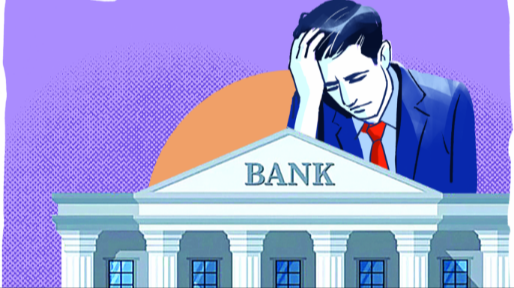TBS
Highlights:
- Five Islamic banks merging into Bangladesh’s largest by assets
- Individual depositors prioritized; institutions may receive shares
- Insured payout capped at Tk2 lakh, repaid within two months
- Deposits above Tk2 lakh repaid gradually; 4% interim return
- Government, insurance fund, lenders to provide Tk35,000 crore capital
- Banks delisted; shareholders face losses, possible compensation considered
Bangladesh Bank is drafting a payment scheme to safeguard depositors of five Islamic banks set to be merged into a single entity, which will become the country’s largest bank by assets.
The five banks together hold deposits of Tk1.52 lakh crore against loans exceeding Tk2 lakh crore, according to central bank data. Nearly one-third of these deposits – about Tk46,000 crore – belong to individual depositors, while the rest are held by institutions, according to Bangladesh Bank data.
Priority for depositors
Central bank officials told The Business Standard that individual depositors will get top priority in repayments. Institutional depositors, however, may receive shares in the newly merged bank instead of cash.
Under the proposed plan, individual depositors will be guaranteed a maximum insured payout of Tk2 lakh, as stipulated in the draft amendment to the Deposit Protection Act, pending final approval. This amount must be disbursed within two months of the banks’ licence revocation under the Bank Resolution Ordinance 2025.
Deposits above Tk2 lakh will be repaid in phases, though no timeline has been finalised. During the interim merger period, depositors may earn a flat 4% return, but all existing deposit schemes will be scrapped.
If a depositor holds multiple accounts across the five banks, these will be treated as a single account, with insurance limited to Tk2 lakh in total. Repayment of balances above that limit will fall under the phased repayment scheme.
Borrowers, meanwhile, will see no changes – loan instalments must be paid on schedule, and defaults will continue to be penalised.
However, the entire repayment scheme for depositors hinges on the final approval of the draft amendment to the Deposit Protection Act.
All five soon-to-be-merged banks are listed on the Dhaka Stock Exchange (DSE) and will be delisted once the merger is complete
Capital support for the new bank
Once merged, the five banks will form an entity with assets worth around Tk2.20 lakh crore. Its paid-up capital will be Tk35,000 crore, financed by Tk20,000 crore from the government, Tk10,000 crore from the deposit insurance fund, and Tk5,000 crore from multilateral lenders such as the IMF, World Bank and ADB. Ultimately, even external funds will be repaid by taxpayers.
The banks to be merged are First Security Islami Bank, Global Islami Bank, Union Bank, Social Islami Bank, and EXIM Bank. Four of them were controlled by Chattogram-based S Alam Group, which has long faced scrutiny for its dominance in financial institutions.
Bangladesh Bank has also decided to replace the managing directors of these banks with administrators, who will run operations during the transition. The boards will remain inactive throughout the process.
Fate of general shareholders
All five soon-to-be-merged banks are listed on the Dhaka Stock Exchange (DSE) and will be delisted once the merger is complete.
Under the Bank Company Act, general shareholders are not entitled to compensation in the event of liquidation or merger. However, the Bangladesh Bank is considering ways to compensate them following advice from the finance ministry, a senior central bank executive told TBS.
The central bank will hold a meeting with the Bangladesh Securities and Exchange Commission (BSEC) to discuss the delisting process and possible compensation for general shareholders. According to the Bank Resolution Ordinance, the licenses of all five banks will be cancelled, and a new license will be issued for the merged entity.
General shareholders have already incurred heavy losses, with the share prices of all five banks falling below Tk5 each, against a face value of Tk10.
As of August this year, public shareholding stood at 65% in First Security Islami Bank, 31.46% in Global Islami Bank, 18% in Social Islami Bank, 39.28% in EXIM Bank and 31% in Union Bank, according to DSE data.
Losses in these banks have also weighed on investor sentiment across the banking sector. Of the 36 listed banks, only about a dozen now trade above their face value of Tk10.
BRAC Bank, the most profitable private commercial bank, recorded the highest share price – above Tk70 – while even strong performers like City Bank have struggled.
Despite joining the Tk1,000 crore profit club in 2024, City Bank’s shares have remained stuck at Tk25, reflecting low investor confidence.
Role of administrators
The Bank Resolution Ordinance allows Bangladesh Bank to exercise its powers directly or through appointed administrators under the Prompt Corrective Action Framework.
Administrators will assess the banks’ financial health, preserve stability, and ensure prudent management during the interim period. They may replace key executives and act as chairmen or directors if required.
Their appointments will be announced publicly in at least two major national newspapers and posted on both Bangladesh Bank and the affected banks’ websites.
For Islamic banks, administrators must have expertise in Shariah-compliant finance or be authorised to retain staff with such expertise to ensure proper management.

